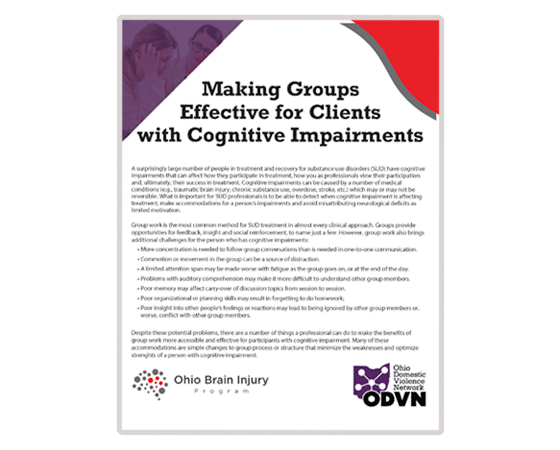Substance Use & Mental Health
The intersection of substance use, mental health, and trauma
Substance use and mental health concerns can precede or result from trauma experiences. Individuals may use substances as a coping mechanism for physical and emotional pain related to violence in their relationship. Trauma, especially when unaddressed, can significantly impact mental health, leading to conditions such as depression, anxiety, or post-traumatic stress disorder (PTSD). Recognizing these overlapping issues is essential for providing effective, compassionate, and trauma-informed support services that address not just the individual components, but the broader context of a person’s lived experience.
Core Training Series
The Substance Use/Mental Health Program Director offers four (4) core trainings:
- The Intersection of Substance Use and Trauma
- The Intersection of Mental Health and Trauma
- Harm Reduction
- Motivational Interviewing
The following topic is also available on request:
- Overdose Related Brain Injury
The training courses are two hours in length and can be held in-person or virtually. Whenever possible, in-person trainings are preferred. Training costs for non-ODVN member programs and agencies will be discussed upon scheduling.
The training courses listed above are available upon request and by contacting the Substance Use/Mental Health Program Director, Cheryl Stahl at cheryls@odvn.org.
Substance Use and Mental Health Resources
The following resources and materials are available to anyone and can be viewed and downloaded by clicking on the link. They may also be requested by mail.
Technical Assistance
The Substance Use/Mental Health Program Director offers on-site, virtual, email, and telephone consultations to domestic violence service providers and allied professionals working with survivors with substance use and/or mental health experiences. Programs needing support and assistance in program development, policy & procedure development or revision, staff training and development, best practice standards of service, and trauma-informed & client-centered services around substance use and mental health can contact ODVN for assistance and guidance
To request training, resources, or technical assistance, contact Cheryl Stahl at cheryls@odvn.org.
Get in touch. Get involved.
174 E Long Street #200 Columbus, OH 43215
1.800.934.9840
614.781.9651
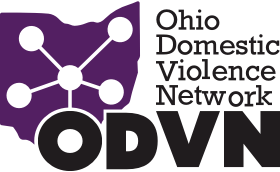
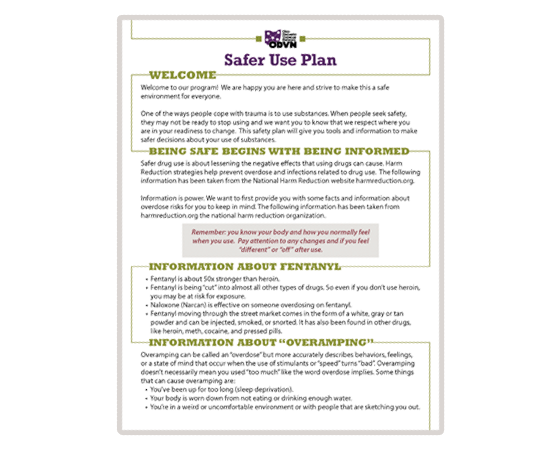
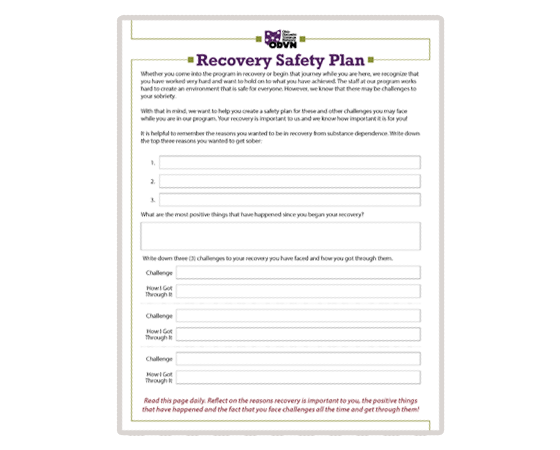
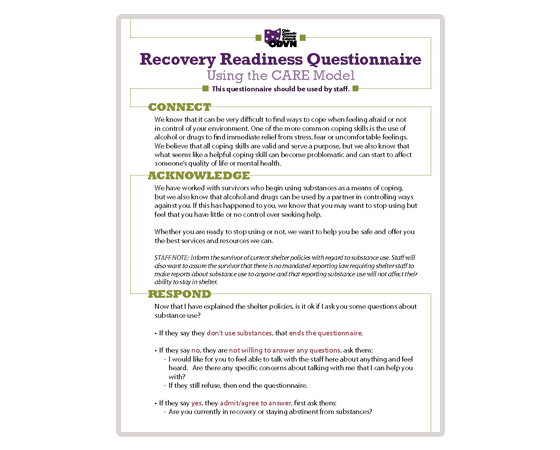
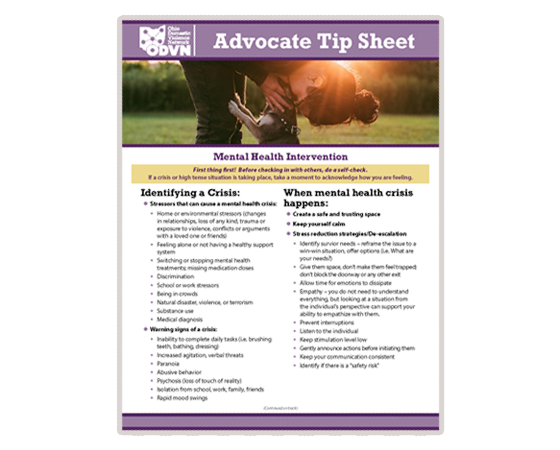
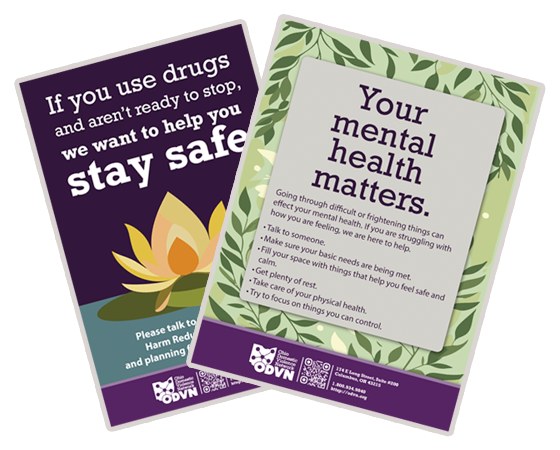 Mental Health Posters
Mental Health Posters